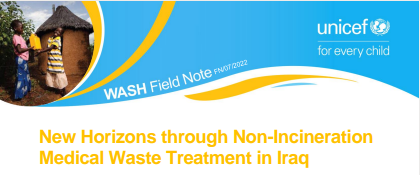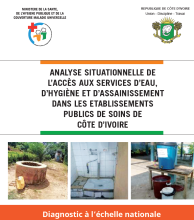Field Note: New Horizons through Non-Incineration Medical Waste Treatment in Iraq

Decades of wars and violence have led to severe disruptions in the health system in Iraq as well as to the absence of sound sectoral policies, strategies, and enforcement of legislation. This has contributed to a significant deterioration of health services, especially for the handling and disposing of health care waste. Poor management of health care waste can cause serious diseases and poses a major threat to healthcare personnel, waste workers, patients, and the general public. In Iraq, most hospitals do not apply any type of medical waste treatment and simply mix medical waste with the domestic waste. However, some hospitals do have incinerators, but the use is intermittent and, when used, these incinerators can produce air pollution to the neighboring households. The UNICEF Iraq country office, in coordination and collaboration with the Ministry of Health and the Ministry of Environment, is working with a new, advanced treatment technology, combining shredding and sterilization by microwaves in one single vessel, to mitigate the risk of contamination and to ensure safer management of the medical waste generated by hospitals in urban areas.




